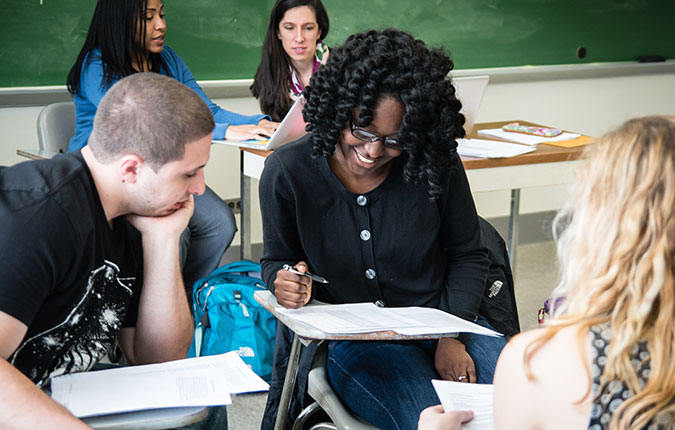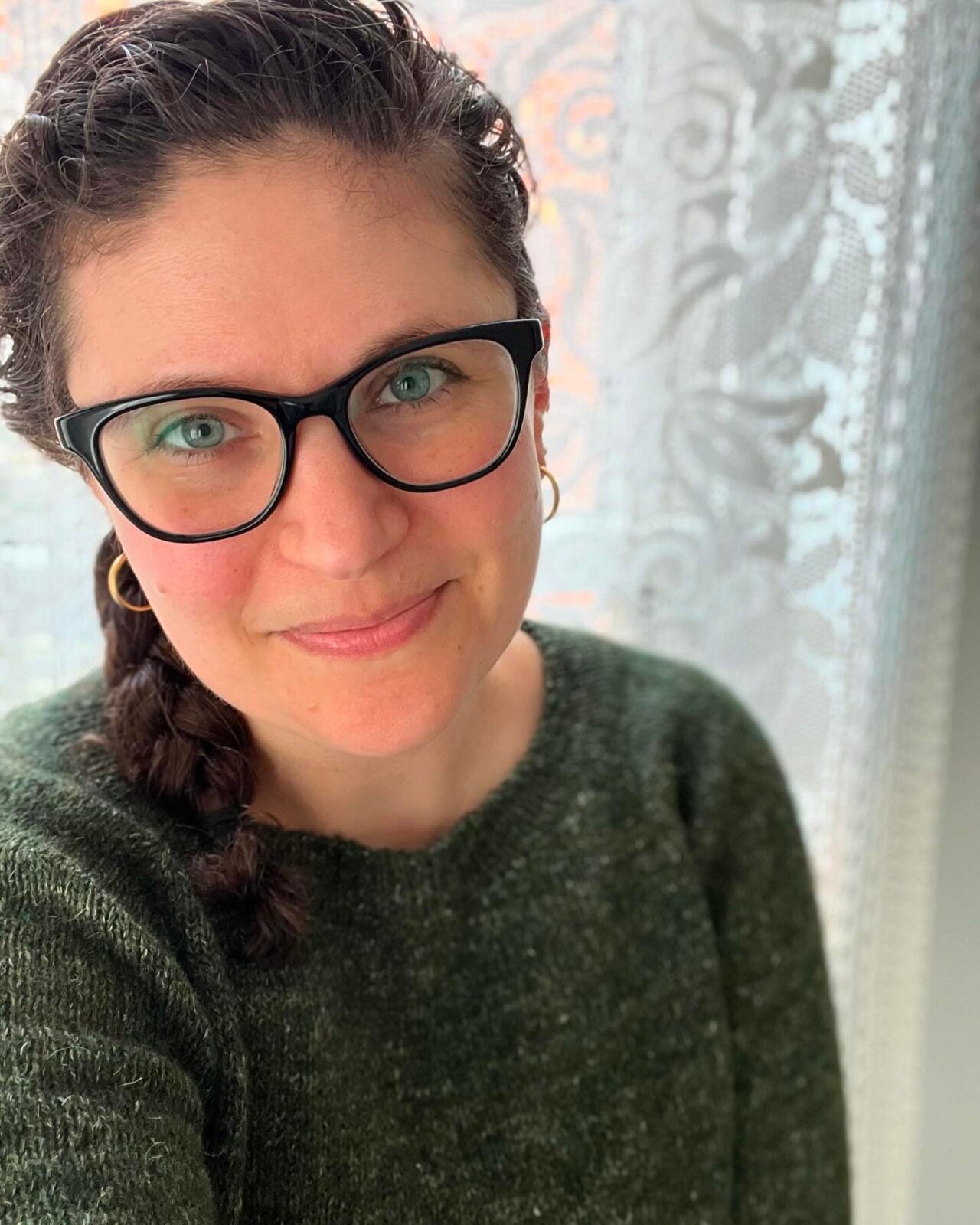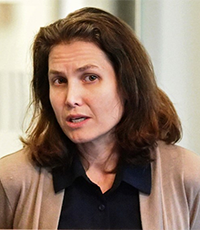ORTNER CENTER ON VIOLENCE & ABUSE
The Ortner Center on Violence & Abuse is a collaborative effort of faculty and students at the University of Pennsylvania who research issues related to violence and abuse against women & girls.
The Center is a vital resource for policy makers, agency directors, researchers, and educators as they search for ways to end violence and abuse against women and girls. In addition to publishing research findings in scholarly journals, Center affiliates teach related graduate and undergraduate courses at Penn. We also testify before policymakers, collaborate with community-based organizations, and reach the general public through various media outlets.

Our Mission
Safe Daughters. Confident Women. Strong Society.
Our Vision
The mission of the Ortner Center on Violence & Abuse in Relationships is to
- Investigate the correlates and consequences of violence and abuse against women and girls in domestic and intimate relations
- Educate the next generation of researchers, practitioners, and policy makers
- Translate research findings to policy and practice
- Engage community and university stakeholders to prevent violence and abuse, create conditions for health, well-being and flourishing for women and girls and, thus, make society stronger.
Penn Faculty Fellows
Millan AbiNader, MSW, PhD
School of Social Policy & Practice Assistant Professor

Dr. Millan AbiNader is a mixed-methods researcher who seeks to understand the social ecology of gender-based violence, with particular attention to intimate partner violence (IPV)-related fatalities. Dr. AbiNader also seeks to understand how one’s social and geographic position, like race or rurality, affects one’s experience of gender-based violence and investigates how organizational environment, like vicarious traumatization prevention policies, affects survivor-client experiences. Before entering academia, Dr. AbiNader worked as a community victim services advocate in the fields of sexual violence, intimate partner violence, family violence, and commercial sexual exploitation/trafficking. She delivered primary prevention interventions kindergarten through college, facilitated support groups in the community and in carceral settings, and delivered advocacy services to incarcerated women.
Read her full bio here.
Select Publications
Ogbonnaya, I. N., AbiNader, M. A., Cheng, S., Jiwatam-Negrón, T., Bagwell-Gray, M., Brown, M. L., & Messing, J. T. (in press) Intimate Partner Violence, Police Engagement, and Perceived Helpfulness of the Legal System: An Analysis by Survivor Race and Ethnicity. Journal of the Society of Social Work Research. https://doi.org/10.1086/714828
Messing, J.T., Campbell, J., AbiNader, M.A., Bolyard, R. (in press) Accounting for Multiple Non-Fatal Strangulation in Intimate Partner Violence Risk Assessment. Journal of Interpersonal Violence. https://doi.org/10.1177/0886260520975854
Messing, J., Wachter, K., AbiNader, M., Ward-Lasher, A., Njie-Carr, V., Sabri, B., Murray, S. Noor-Oshiro, A., Campbell, J. (in press). “We have to build trust”: Intimate partner violence risk assessment with immigrant and refugee survivors. Social Work Research.
AbiNader, M. A., Thomas, M. M. C., & Carolan, K. (in press). Talking (or not) about sexual violence: Newspaper coverage of the confirmation hearings of Justices Thomas and Kavanaugh. Journal of Interpersonal Violence. https://doi.org/10.1177/0886260520906174
Messing, J. T., AbiNader, M.A., Pizarro, J. M., Campbell, J. C., & Brown, M. L. (2021) The Arizona Intimate Partner Homicide (AzIPH) Study: A Step Toward Updating and Expanding Risk Factors for Intimate Partner Homicide. The Journal of Family Violence, 36, 563-572. https://doi.org/10.1007/s10896-021-00254-9
Barchi, F., AbiNader, M. A., Winter, S. C., Obara, L. M., Mbogo, D., Thomas, B. M., & Ammerman, B. (2021) “It is like medicine”: Using sports to promote adult women’s health in rural Kenya. International Journal of Environmental Research and Public Health, 18(5), 2347. https://doi.org/10.3390/ijerph18052347 [Special Issue, Physical Exercise and Chronic Diseases Prevention, T. E., Dorner & I. Grabovac (eds.)]
AbiNader, M. A. (2020). Correlates of Intimate Partner Homicide in the Rural United States: Findings from a National Sample of Rural Counties, 2009-2016. Homicide Studies, 24(4),353-376. https://doi.org/10.1177/1088767919896403
AbiNader, M. A., DeVoe, E., & Spencer R. (2020)”It’s Like You Gotta Fly the Plane while You’re Repairing It at the Same Time”: Supporting Rural Intimate Partner Violence Victim Advocates after the Homicide of a Client. Partner Abuse, 11(2), 158-178. DOI: http://dx.doi.org/10.1891/PA-D-19-00054
AbiNader, M. A., Salas-Wright, C. P., Vaughn, M. G., Oh, S., & Jackson, D. (2018) Trends and Correlates of Youth Violence Prevention Program Participation, 2002-2016. American Journal of Preventative Medicine, 56(5), 680-688. DOI: https://doi.org/10.1016/j.amepre.2018.12.016
—
show lessCristina Bicchieri, PhD
Department of Philosophy (SAS) and Wharton S. J. Patterson Harvie Professor of Social Thought and Comparative Ethics

Professor Bicchieri’s research focuses on judgment and decision making, especially pro-social decisions, and how social expectations affect behavior. Social norms are a big part of this work, and many of her experiments show the effect of norms on behavior. She also is interested in the evolution of social norms, how they can emerge and decay.
In her recent work, she designed behavioral experiments aimed at testing hypotheses based on the theory of social norms that she developed in her book, The Grammar of Society: the Nature and Dynamics of Social Norms (Cambridge University Press, 2006). The experimental results show that most subjects have a conditional preference for following pro-social norms. Manipulating their expectations causes major behavioral changes. Policymakers who want to induce pro-social behavior have to work on changing people’s social expectations.
Her new book, Norms in the Wild: How to Diagnose, Measure and Change Social Norms, forthcoming with Cambridge University Press, summarizes her experience consulting with UNICEF and other NGOs on social norms including norms about violence against women. In the book, she stresses measurement and change, and what sort of policies may be most conducive to positive social change.
Her work on dynamics of social norms asks how norms may emerge and become stable, why an established norm may be abandoned, how is it possible that inefficient or unpopular norms survive, and what motivates people to obey norms.
Recent Select Publications
Aldama A, Bicchieri C, Freundt J, Mellers B, Peters E. How perceptions of autonomy relate to beliefs about inequality and fairness. PLoS One, 2021; 16.
Kuang J, Delea MG, Thulin E, Bicchieri C. Do descriptive norms messaging interventions backfire? Protocol for a systematic review of the boomerang effect. Syst Rev., 2020; 9: 267.
Bicchieri C, Dimant E. Nudging with care: The risks and benefits of social information. Public Choice, 2019; doi: 10.1007/s11127-019-00684-6.
Hart E, Mellers BA, Bicchieri C. Bad luck or bad intentions: When do third parties reveal offenders’ intentions to victims? Journal of Experimental Social Psychology, 2019; 84: 103788.
Bicchieri C. Norms in the wild: How to diagnose, measure, and change social norms. Oxford University Press, 2016.
Thulin EW, Bicchieri C. I’m so angry I could help you: Moral outrage as a driver of victim compensation. Social Philosophy & Policy, 2016, 32: 146-160.
More publications by Professor Bicchieri can be found here.
Download new papers by Professor Bicchieri here.
show lessKathleen Brown, CRNP, PhD, FAAN
School of Nursing Practice Associate Professor of Nursing

Kathleen M. Brown, PhD, is a pioneering nurse who helped create the Sexual Assault Nurse Examiner (SANE) programs that have become common across the country. Her protocols have been implemented into state policy and the American Prosecutors Research Institute, a division of the National Institute of Justice.
Dr. Brown consults with prosecutors and defense attorneys nationally, consults with the U.S. Army Judge Advocate General’s Corp, and has been the sole nurse expert in many criminal trials and court martial procedures. In 2009, she received the Bridge of Courage Award from Women Organized Against Rape and was inducted as a fellow into the American Academy of Nursing.
Click here to read about an effort Dr. Brown co-founded in 2014 to break the cycle of prostitution. As Dr. Brown said, “Little girls don’t grow up wanting to be a prostitute. There often is a history of abuse there.”
Recent Select Publications
Sommers MS, Regueira Y, Tiller DA, Everett JS, Brown K, Brignone E, Fargo JD. Understanding rates of genital-anal injury: Role of skin color and skin biomechanics. Journal of Forensic and Legal Medicine. 2019; 66: 120-128.
Brawner BM, Sommers MS, Moore K, Aka-James R, Zink T, Brown KM, Fargo JD. Exploring genitoanal injury and HIV risk among women: Menstrual phase, hormonal birth control, and injury frequency and prevalence. Journal of Acquired Immune Deficiency Syndrome. 2016; 71: 207-212.
show lessPeter Cronholm, MD, MSCE
School of Medicine, Family Medicine and Community Health Associate ProfessorNursing

Peter Cronholm, MD, MSCE, FAAFP, is an Associate Professor in the Department of Family Medicine and Community Health, where he also is the Director of Community Programs as well as the Director of the Mixed Methods Research Lab.
Professor Cronholm’s research focuses on integrating trauma-informed approaches and primary prevention strategies into systems of primary care. He has a particular interest in identifying and working with perpetrators of intimate partner violence.
Dr. Cronholm is on the Board of Directors and past-Chair of the Education, Research and Scientific Programs Committee for the Academy of Violence and Abuse and was the Co-Chair of the Society of Teachers of Family Medicine’s Group on Violence Education and Prevention.
Recent Select Publications
Nadler LE, Ogden SN, Scheffey KL, Cronholm PF, Dichter ME. Provider practices and perspectives regarding collection and documentation of gender identity. Journal of Homosexuality. 2019; Sep 17: 1-13.
Whittaker J, Kellom K, Matone M, Cronholm P. A community capitals framework for identifying rural adaptation in maternal-child home visiting. Journal of Public Health Management and Practice. Published online July 2019.
Cronholm PF, Dichter ME. The need for systems of care and a trauma-informed approach to intimate partner violence. American Family Physician. 2018; 97(11): Online.
Matone M, Kellom K, Griffis H, Quarshie W, Faerber J, Gierlach P, Whittaker J, Rubin DM, Cronholm PF. A mixed methods evaluation of early childhood abuse prevention within evidence-based home visiting programs. Maternal and Child Health Journal. 2018; 22(Suppl 1): 79-91.
Wade R Jr, Cronholm PF, Fein JA, Forke CM, Davis MB, Harkins-Schwarz M, Pachter LM, Bair-Merritt MH. Household and community-level Adverse Childhood Experiences and adult health outcomes in a diverse urban population. Child Abuse & Neglect. 2016; 52: 135-145.
More publications can be found here.
show lessMaria Cuellar, PhD
School of Arts & Sciences Assistant Professor

Dr. Cuellar is an assistant professor in Penn’s Criminology department. She earned a PhD in statistics and policy at the joint program of the Carnegie Mellon University Department of Statistics and Data Science and the Heinz College School of Public Policy and Management. She earned her bachelor’s degree in physics at Reed College.
Before earning her doctorate, Dr. Cuellar managed a 200-person team at MIT’s Justice and Poverty Lab that implemented the largest JPAL randomized controlled trial in Latin America at the time (70,000 participants) to evaluate the impact of parental involvement on educational outcomes. Working with the EcoScience Foundation, she created the Bus ConCiencia, a mobile laboratory that offers student and teacher workshops in remote towns in Chile.
Dr. Cuellar studies causation in legal contexts and has applied this framework to evaluate the use of scientific evidence in cases of Shaken Baby Syndrome and other forms of child abuse. She is exploring using experimental designs to develop a mechanism that can reduce contextual bias in forensic analysis.
In 2018, Dr. Cuellar was awarded the Norman Breslow Prize, the Statistics in Epidemiology section’s top award presented to young investigators, which is given to papers with both methodological contributions and substantive epidemiological applications.
Recent Select Publications
Mejia R, Cuellar M, Salyards J. Implementing blind proficiency testing in forensic laboratories: Motivation, obstacles, and recommendations. Forensic Science International. 2020; 2: 293-298.
Kaplan J, Ling S, Cuellar M. Public beliefs about the accuracy and importance of forensic evidence in the United States. Science & Justice. 2020; 60: 263-272.
Cuellar M. Short fall arguments in court: A probabilistic analysis. University of Michigan Journal of Law Reform, 2017; 50: 763.
Cuellar M. Causal reasoning and data analysis: Problems with the abusive head trauma diagnosis. Law, Probability and Risk, 2017; 16: 223–239.
show lessMalitta Engstrom, PhD
School of Social Policy & Practice Associate Professor

Malitta Engstrom, PhD, is an associate professor in the School of Social Policy & Practice. Her research focuses on substance use, criminal justice system involvement, HIV, and victimization, particularly in relation to families and women across the life course. Her scholarship advances understanding of these intersecting health concerns and informs evidence-supported practices designed to address them. Professor Engstrom’s research has been funded by numerous organizations, including the National Institute on Drug Abuse, the John A. Hartford Foundation, the Penn Center for AIDS Research, and the Penn University Research Foundation. She brings experience as a clinical social worker, supervisor, and field instructor to her research and teaching.
Recent Select Publications
Masin-Moyer M, Kim JC, Engstrom M, Solomon P. A scoping review of the Trauma Recovery and Empowerment Model (TREM). Trauma Violence Abuse. 2020 Nov 10:1524838020967862.
Masin-Moyer M, Engstrom M, Solomon P. A comparative effectiveness study of a shortened trauma recovery empowerment model and an attachment-informed adaptation. Violence Against Women. 2020; 26: 482-504.
Engstrom M, Winham KM, Gilbert L. Types and characteristics of childhood sexual abuse: How do they matter in HIV sexual risk behaviors among women in methadone treatment in New York City? Substance Use & Misuse. 2016; 51: 277-294.
Golder S, Engstrom, M, Hall, MT, Higgins, G, Logan T. Psychological distress among victimized women on probation and parole: A latent class analysis. American Journal of Orthopsychiatry. 2015; 85: 382-391.
Winham KM, Engstrom,M, Golder S, Renn, T, Higgins GE, Logan T. Childhood victimization, attachment, psychological distress and substance use among women on probation and parole. American Journal of Orthopsychiatry. 2015; 85: 145-158.
show lessEdna B. Foa, PhD
Perelman School of Medicine Professor of Clinical Psychology in Psychiatry

Edna B. Foa, PhD, is a Professor of Clinical Psychology in Psychiatry in the School of Medicine and Director of the Center for the Treatment and Study of Anxiety. Dr. Foa is the world-renowned developer of prolonged exposure therapy, a treatment for post-traumatic stress disorder (PTSD) in which people revisit the traumatic event in order to help them heal. Her groundbreaking work has changed the lives of victims of rape, members of military, and others who have experienced traumatic events. She has received many awards for her contribution to the field, including her first honorary doctorate degree from the University of Basal in Switzerland.
Click here to see what Time magazine wrote when they named her one of the 100 Most Influential People of 2010.
Recent Select Publications
Fina BA, Wright EC, Rauch SAM, Norman SB, Acierno R, Cuccurullo LJ, Dondanville KA, Moring JC, Brown LA, Foa EB. Conducting prolonged exposure for PTSD during the COVID-19 pandemic: Considerations for treatment. Cognitive Behavior Practice. 2020 Oct 17.
Keshet H, Foa EB, Gilboa-Schechtman E. Women’s self-perceptions in the aftermath of trauma: The role of trauma-centrality and trauma-type. Psychological Trauma. 2019; 11: 542-550.
Chang C, Kaczkurkin AN, McLean CP, Foa EB. Emotion regulation is associated with PTSD and depression among female adolescent survivors of childhood sexual abuse. Psychological Trauma. 2017; 10: 319-326.
Foa EB, Asnaani A, Zang Y, Capaldi S, Yeh R. Psychometrics of the Child PTSD Symptom Scale for DSM-5 for trauma-exposed children and adolescents. Journal of Clinical Child and Adolescent Psychology. 2017; 47: 38-46.
McLean CP, Foa EB. Emotions and emotion regulation in posttraumatic stress disorder. Current Opinions Psychology. 2017; 14: 72-77.
Foa EB, McLean CP. The efficacy of exposure therapy for anxiety-related disorders and its underlying mechanisms: The case of OCD and PTSD. Annual Review of Clinical Psychology, 2016; 12: 1-28.
show lessSara Jaffee, PhD
School of Arts & Sciences, Department of Psychology Professor of Psychology, Director of Graduate Studies

Dr. Jaffee is broadly interested in the links between exposure to violence and child and adolescent well-being. Her research tackles questions like: “What makes some children resilient to maltreatment and other forms of violence?” “Does a child’s genetic makeup influence how sensitive a child is to violence?” “If some youth are more likely than other to be exposed to violence, are there social contextual factors that are protective?” and “To what extent does exposure to violence shape physiological stress response systems?”
Recent Select Publications
Holochwost SJ, Wang G, Kolacz J, Mills-Koonce WR, Klika JB, Jaffee SR. The neurophysiological embedding of child maltreatment. Developmental Psychopathology. 2020 July 6: 1-31.
Brumley LD, Brumley BP, Jaffee SR. Comparing cumulative index and factor analytic approaches to measuring maltreatment in the National Longitudinal Study of Adolescent to Adult Health. Child Abuse and Neglect. 2019; 87: 65-76.
Jaffee SR. Lead exposure and child maltreatment as models for how to conceptualize early-in-life risk factors for violence. Infant Mental Health Journal. 2019; 40: 23-38.
Jaffee SR, Ambler A, Merrick M, Goldman-Mellor S, Odgers CL, Fisher HL, Danese A, Arseneault L. Childhood maltreatment predicts poor economic and educational outcomes in the transition to adulthood. American Journal of Public Health, 2018; 108:1142–1147.
Crush E, Arseneault L, Jaffee SR, Danese A, Fisher HL. Protective factors for psychotic symptoms among poly-victimized children. Schizophrenia Bulletin. 2018; 44: 691-700.
Crush E, Arseneault L, Moffitt TE, Danese A, Caspi A, Jaffee SR, Matthews T, Fisher HL. Protective factors for psychotic experiences amongst adolescents exposed to multiple forms of victimization. Journal of Psychiatric Research. 2018; 104: 32-38.
Stern A, Agnew-Blais J, Danese A, Fisher HL, Jaffee SR, Matthews T, Polanczyk GV, Arseneault L. Associations between abuse/neglect and ADHD from childhood to young adulthood: A prospective nationally-representative twin study. Child Abuse and Neglect. 2018; 81: 274-285.
Jaffee, S. R., Takizawa, R., Merrick, M., & Arseneault, L. Supportive, stable, nurturing relationships buffer women with a history of maltreatment from poor physical and mental health. Psychological Medicine. 2017; 47: 2628-2639.
show lessIvona Percec, MD, PhD
Perelman School of Medicine, Division of Surgery Assistant Professor

Ivona Percec, MD, PhD, is an Assistant Professor in the Cosmetic Surgery Division of the Department of Surgery in the Perelman School of Medicine, and a Fellow in the Institute of Aging at the University of Pennsylvania. She earned her A.B. degree in Molecular Biology with a minor in Medieval Studies at Princeton University and her M.D./Ph.D. at the University of Pennsylvania, where she also completed six years of surgery internship and residency training.
Professor Percec, a surgeon specializing in genital reconstructive surgery, has developed surgical techniques to repair women who were victims of female genital mutilation. To our knowledge, her work is the first to be published in a medical journal.
To read more about her path-breaking work, click here for an interview with The Development Set and here for an article in Time magazine.
Recent Select Publications
Calvert C, Nathan S, Sakers A, Akinbiyi T, Percec I. National survey of US plastic surgeon experience with female genital mutilation. Plastic and Reconstructive Surgery Global Open. 2020; 8: e2624.
Akinbiyi T, Langston E, Percec I. Female genital mutilation reconstruction for plastic surgeons — A call to arms. Plastic Reconstructive Surgery Global Open. 2018; 6: e1945.
Chang CS, Low DW, Percec I. Female genital mutilation reconstruction: A preliminary report. Aesthetic Surgery Journal. 2017; 38: 942-946.
show lessLyle Ungar, PhD
Computer and Information Science Professor

Lyle Ungar, PhD is a Professor of Computer and Information Science at the University of Pennsylvania, where he also holds appointments in multiple departments in the Schools of Business, Medicine, Arts and Sciences, and Engineering and Applied Science. Professor Ungar has published over 200 articles and is co-inventor on eleven patents. His current research focuses on developing scalable machine learning methods for data mining and text mining, including spectral methods for NLP, and the analysis of social media to better understand what determines physical and mental well-being. He is a leader in Penn’s World Well-Being Project and, with the Ortner Center, is supervising the #YesAllWomen project.
Recent Select Publications
Guntuku SC, Sherman G, Stokes DC, Agarwal AK, Seltzer E, Merchant RM, Ungar LH. Tracking mental health and symptom mentions on Twitter during COVID-19. Journal of General Internal Medicine. 2020; 35: 2798-2800.
Guntuku SC, Schneider R, Pelullo A, Young J, Wong V, Ungar L, Polsky D, Volpp KG, Merchant R. Studying expressions of loneliness in individuals using Twitter: An observational study. BMJ Open. 2019; 9: e030355.
Merchant RM, Asch DA, Crutchley P, Ungar LH, Guntuku SC, Eichstaedt JC, Hill S, Padrez K, Smith RJ, Schwartz HA. Evaluating the predictability of medical conditions from social media posts. PLoS One. 2019; 14: e0215476.https://journals.plos.org/plosone/article?id=10.1371/journal.pone.0215476
Sinnenberg L, Buttenheim AM, Padrez K, Mancheno C, Ungar L, Merchant RM. Twitter as a tool for health research: A systematic review. American Journal of Public Health. 2017; 107: e1-e8.
Click here to watch his 2015 TEDx talk.
To see recent publications and learn more, click here.
show lessJennifer J. Prah
Director, Ortner Center on Violence & Abuse

Dr. Prah is an internationally leading scientist and scholar of global and domestic health policy and public health. She conducts groundbreaking theoretical and empirical studies of health equity to address global and national health inequities, especially among women and children. Dr. Prah draws on her training in political economy, health policy, international relations, comparative social research and law to cross disciplines and reexamine the values and principles that underlie health policy and public health and apply these principles empirically. She created the pioneering Health Capability Paradigm, challenging existing approaches and illuminating optimal health policies and laws. She has developed a new empirical approach to evaluate public health programs and health policies as they measure up to that paradigm, including the Health Capability Profile.
Dr. Prah founded and directs the Health Equity and Policy Lab (HEPL), a mixed methods lab that studies public health and health and social policy issues such as the equity and efficiency of health system access, financing, resource allocation, policy reform, regulation, the social determinants of health, the health capability profile and domestic violence and abuse. Her research is conducted internationally and nationally, including work in Germany, Ghana, India, Indonesia, Malawi, Malaysia, Morocco, South Korea, South Africa, Taiwan, the United States, and Vietnam. Dr. Prah is the director of the Ortner Center on Violence and Abuse.
Dr. Prah was a member of the Institute of Medicine’s Board on Global Health; the Ethics Subcommittee of the Advisory Committee to the Director at the U.S. Centers for Disease Control and Prevention (CDC) and the Institute of Medicine’s Committee to Evaluate The U.S. President’s Emergency Plan for AIDS Relief (PEPFAR). She has served on several international and national advisory and expert review committees, including for the World Health Organization, National Institutes of Health, Fulbright Program, Agency for Healthcare Research and Quality (AHRQ) and institutions in East Asia, the Middle East, and Europe. She is the past Chair and Program Chair of the Ethics Special Primary Interest Group (SPIG) of the American Public Health Association (APHA). She was previously the Co-Director of the Yale-World Health Organization Collaborating Centre for Health Promotion, Policy and Research. She served previously at the World Bank as health economist and speechwriter to president James D. Wolfensohn and on the health and development satellite secretariat of WHO Director-General Gro Harlem Brundtland’s Transition Team. Dr. Prah has been an elected member of the Council on Foreign Relations, a Hastings Center Fellow, a Greenwall Faculty Scholar, a Guggenheim Fellow, a Donaghue Investigator, a Harvard Center for Population and Development Studies Fellow, and a Yale Public Voices Thought Leadership Fellow.
She received master’s degrees from Oxford University, the Fletcher School of Law and Diplomacy at Tufts University, and Yale University, and a doctoral degree from Harvard University
Select Publications
Ruger JP. Global Health Justice and Governance. Oxford, U.K.: Oxford University Press; 2018
Ruger JP. Health and Social Justice. Oxford, U.K.: Oxford University Press; 2010
Prah JJ, Gostin LO. Post-separation abuse: an ignored public health crisis and preventable injustice. The Lancet. 2025; December 13.
Coste M*, Prah JJ. Applying the health capability profile: an analytical study of leading causes of death in the USA and of pressing public health issues. J. Epidemiol Community Health 2025; Jan 2
Coste M*, Badji MA, Diallo A, Mora M, Boyer S, Prah JJ. Applying the health capability profile to empirically study chronic hepatitis B in rural Senegal: a social justice mixed-methods study protocol. BMJ Open 2022; 12: e055957
Ruger JP, Zhang K*, Turner EN*. Justice for Women and Society: The Case of Obstetric Fistula. Georgetown Law Journal 2020; 108(6): 1717-59
Ruper JP, Zhang K. Addiction as Capabilities Failure. University of Pennsylvania Journal of Law & Public Affairs 2019; 5(1): 25-61.
Loree AM*, Gariepy A, Ruger JP, Yonkers KA. Postpartum Contraceptive Use and Rapid Repeat Pregnancy Among Women Who Use Substances. Substance Use & Misuse 2018; 53 (1): 162-9.
Xu X, Yonkers KA, Ruger JP. Economic Evaluation of a Behavioral Intervention Versus Brief Advice for Substance Use Treatment in Pregnant Women: Results from a Randomized Controlled Trial. BMC Pregnancy and Childbirth 2017; 17: 83
Forray A*, Merry B, Lin H, Ruger JP, Yonkers KA. Perinatal Substance Use: A Prospective Evaluation of Abstinence and Relapse. Drug and Alcohol Dependence 2015; 150: 147-55.
Feldman CH*, Darmstadt GL, Kumar V, Ruger JP. Women’s Political Participation and Health: A Health Capability Study in Rural India. Journal of Health Politics, Policy and Law 2014; 40 (1): 101-64.
Xu X, Yonkers KA, Ruger JP. Costs of a Motivational Enhancement Therapy Coupled with Cognitive Behavioral Therapy Versus Brief Advice for Pregnant Substance Users. PLOS One 2014; 9(4): e95264
Ruger JP, Abdallah AB, Ng NY, Luekens C, Cottler L. Cost-effectiveness of Interventions to Prevent HIV and STDs Among Women: A Randomized Controlled Trial. AIDS and Behavior 2014; 18(10): 1913-23
Ruger JP, Abdallah AB, Luekens C*, Cottler L. Cost-Effectiveness of Peer-Delivered Interventions for Cocaine and Alcohol Abuse Among Women: A Randomized Controlled Trial. PLoS One 2012; 7(3): e33594.
Ruger JP, Lazar CM*. Economic Evaluation of Drug Abuse Treatment and HIV Prevention Programs in Pregnant Women: A Systematic Review. Addictive Behaviors 2012; 37(1): 1-10
Baird J*, Ma S, Ruger JP. Effects of the World Bank’s Maternal and Child Health Intervention on Indonesia’s Poor: Evaluating the Safe Motherhood Project. Social Science & Medicine 2011; 72(12): 1248-55
Kim H-J*, Ruger JP. Socioeconomic Disparities in Behavioral Risk Factors and Health Outcomes by Gender in the Republic of Korea. BMC Public Health 2010; 10(1): 195.
Ruger JP, Weinstein MC, Hammond SK, Kearney MH, Emmons KM. Cost-Effectiveness of Motivational Interviewing for Smoking Cessation and Relapse Prevention Among Low-Income Pregnant Women: A Randomized Controlled Trial. Value in Health 2008; 11(2): 191-8
Ruger JP, Emmons KM. Economic Evaluations of Smoking Cessation and Relapse Prevention Programs for Pregnant Women: A Systematic Review. Value in Health 2008; 11(2): 180-90
*Denotes student, fellow, resident, or research assistant author
show lessScholars
Michelle Dempsey, JD, LLM, DPhil
Villanova School of Law Professor and Associate Dean of Faculty Research & Development

Michelle Madden Dempsey teaches and writes in the areas of criminal law, feminist legal theory, and jurisprudence at the Villanova University Law School, where she also serves as the Associate Dean of Faculty Research and Development. In 2015, she co-founded the Villanova Institute to Address Commercial Sexual Exploitation. Professor Dempsey received her BA from the University of Illinois, JD from the University of Michigan Law School, LLM from the London School of Economics, and D Phil (PhD) from the University of Oxford.
Following law school, she worked as a domestic violence prosecutor in the Champaign (Illinois) County State’s Attorney’s Office and later as a plaintiff’s tort litigator in one of Chicago’s premiere personal injury law firms. As a civil litigator, she obtained a record-setting jury verdict of $10.62 million in a medical malpractice trial and a $3.5 million jury verdict in a wrongful death case involving a shooting death by Chicago Police officers.
She was a tutor in law at University College London and served as an expert consultant on domestic violence prosecutions to the Crown Prosecution Service of England and Wales prior to joining the Oxford Law faculty in 2005. At Oxford, she was a University Lecturer (CUF) in Law and a Tutorial Fellow. She left Oxford In 2009 to join Villanova where she teaches Criminal Law, Evidence, Jurisprudence, Feminist Legal Theory, and Sexuality & Law.
Prof. Dempsey has been working to combat commercial sexual exploitation since the late 1990s, when she served as a lobbyist in Vienna during the United Nations negotiations and drafting of the Protocol to Prevent, Suppress and Punish Trafficking in Persons. She has worked on behalf of the Coalition Against Trafficking in Women and has served as a consultant to the former U.N. Special Rapporteur on Trafficking in Persons.
Select Publications
Dempsey MM. Sex, work, and crime. In Bogg A, et al. (eds.), Criminality at Work. Oxford University Press, 2020.
Dempsey MM. Criminalization in domestic & international law: Considering sexual violence. Criminal Law & Philosophy. 2018; 12: 641-656.
Dempsey MM. What counts as trafficking for sexual exploitation? How legal methods can improve empirical research. Journal of Human Trafficking. 2017; 3: 61-80.
Dempsey MM. Domestic violence and the United States’ criminal justice system. In Bosworth M, et al. (eds.), Contours of Criminal Justice. Oxford University Press, 2016.
show lessMelissa Dichter, PhD
Temple University, School of Social Work Associate Professor

Melissa Dichter is an Associate Professor in the School of Social Work at Temple University. Dr. Dichter earned her PhD in social welfare and master of social work from the University of Pennsylvania, and her BA in child development from Tufts University. She completed a postdoctoral fellowship in health services research at the U.S. Department of Veterans Affairs (VA), Center for Health Equity Research and Promotion. In addition to her role at Temple, Melissa also serves as associate director and core investigator at the VA Center for Health Equity Research and Promotion at the Crescenz (Philadelphia) VA Medical Center. Prior to her position at Temple University, Melissa was on the faculty at the University of Pennsylvania Perelman School of Medicine in the Department of Family Medicine and Community Health.
Dr. Dichter’s research focuses on individuals’ experiences with, and system responses to, intimate partner violence (IPV). Her work has examined healthcare system identification of and response to patient experience with IPV; IPV survivor experiences with criminal legal system intervention; health and social impacts of IPV experience; IPV survivor engagement in social services, social relationships, and advocacy; and IPV experiences of women military veterans. Dr. Dichter’s work has also focused on identifying and meeting the health and psychosocial needs of women military veterans and of gender and sexual minority populations. Dr. Dichter has methodological expertise in primary data collection, mixed methods and qualitative research methods, and community-engaged research.
Select Publications
Creech SK, Pulverman CS, Kroll-Desrosiers A, Kinney R, Dichter ME, Mattocks K. Intimate partner violence among pregnant veterans: Prevalence, associated mental health conditions, and health care utilization. Journal of General Internal Medicine. 2021 Jan 19.
Dichter ME, Ogden SN, Tuepker A, Iverson KM, True G. Survivors’ input on health care-connected services for intimate partner violence. Journal of Womens Health. 2021 Jan 8.
Dichter ME, Makaroun L, Tuepker A, True G, Montgomery AE, Iverson K. Middle-aged women’s experiences of intimate partner violence screening and disclosure: “It’s a private matter. It’s an embarrassing situation”. Journal of General Internal Medicine. 2020; 35:2655-2661.
Iverson KM, Dichter ME, Stolzmann K, Adjognon OL, Lew RA, Bruce LE, Gerber MR, Portnoy GA, Miller CJ. Assessing the Veterans Health Administration’s response to intimate partner violence among women: protocol for a randomized hybrid type 2 implementation-effectiveness trial. Implementation Science. 2020; 15: 29.
Makaroun LK, Brignone E, Rosland AM, Dichter ME. Association of health conditions and health service utilization with intimate partner violence identified via routine screening among middle-aged and older women. JAMA Network Open. 2020; 3: e203138.
Sorrentino AE, Iverson KM, Tuepker A, True G, Cusack M, Newell S, Dichter ME. Mental health care in the context of intimate partner violence: Survivor perspectives. Psychological Services. 2020 Apr 2:10.
Dichter ME, Sorrentino AE, Haywood TN, Tuepker A, Newell S, Cusack M, True G. Women’s participation
in research on intimate partner violence: Findings on recruitment, retention, and participants’ experiences. Women’s Health Issues. 2019; 29: 440-446.
show lessHaya Itzhaky, PhD
Bar-Ilan University Professor and Former Dean, School of Social Work

Haya Itzhaky, PhD, is a Professor at and the former Director of the School of Social Work at Bar-Ilan University in Ramat Gan, Israel. Professor Itzhaky has conducted multiple research studies around the globe (South America, Australia, Nepal, India, Canada, Israel, and the U.S.) on community practice topics ranging from trauma to citizen participation to domestic violence. She recently conducted one of the few longitudinal studies of women who lived in a battered women’s shelter. She also has developed a program for community development and community organizations.
Professor Itzhaky is presently a consultant to Israel’s Minister of Welfare. She was Chairman of the Council of the Directors of University-based Schools of Social Work in Israel and is currently the Head of the Ph.D. Program at the School of Social Work in Bar-Ilan University.
Select Publications
Ben-Porat A, Levy D, Kattoura O, Dekel R, Itzhaky H. Domestic violence in Arab society: A comparison of Arab and Jewish women in shelters in Israel. Journal of Interpersonal Violence. 2021; 36: NP26-NP45.
Dekel R, Shaked O, Ben-Porat A, Itzhaky H. The interrelations of physical and mental health: Self-rated health, depression, and PTSD among female IPV survivors. Violence Against Women. 2020; 26: 379-394.
Levy D, Ben-Porat A, Kattoura O, Dekel R, Itzhaky H. Predicting depression among Jewish and Arab Israeli women who are victims of intimate partner violence. Violence Against Women. 2020; 26: 1209-1227.
Shaked O, Dekel R, Ben-Porat A, Itzhaky H. Predicting changes in PTSD and depression among female intimate partner violence survivors during shelter residency: A longitudinal study. Psychological Trauma. 2020 Aug 20.
Dekel R, Shaked OZ, Ben-Porat A, Itzhaky H. Posttraumatic Stress Disorder upon admission to shelters among female victims of domestic violence: An ecological model of trauma. Violence & Victims. 2019; 34: 329-345.
Refaeli T, Levy D, Ben-Porat A, Dekel R, Itzhaky H. Personal and environmental predictors of depression among victims of intimate partner violence: Comparison of immigrant and Israeli-born women. Journal of Interpersonal Violence. 2019; 34: 1487-1511.
show lessMary P. Koss, PhD
University of Arizona Regents’ Professor

Mary Koss, PhD, is a Regents’ Professor in the Mel and Enid Zuckerman College of Public Health at the University of Arizona. She published the first national study sexual assault among college students in 1987. She was the principal investigator of the RESTORE Program; the first restorative justice program for sex crimes among adults that was quantitatively evaluated. She also directed Safety Connections, a restorative justice-based family strengthening program for children under 5 exposed to violence. She has developed resources for campus use including ARC3 Campus Climate Survey and the STARRSA model for rehabilitation of those responsible for sexual misconduct. Her ongoing work evaluates a sexual assault primary prevention program focusing on staff of alcohol serving establishments. She recently published a test of the “serial rape” hypothesis among college men. Her credentials document close to 300 publications. The most recent appeared in American Psychologist and focused on victim voice and in re-envisioning responses to sexual and physical violence, better responses to underserved populations, and greater alignment of funding from the Violence Against Women Act funding with expressed victim needs.
Dr. Koss has provided consultations for national and international governments and health and advocacy organizations. Since 2016 she has advised the US Departments of Justice, Education, and the White House Taskforce on Campus Sexual Assault. She was the 8th recipient of the Visionary Award from End Violence Against Women International. She has received awards from the American Psychological Association: The Award for Distinguished Contributions to Research in Public Policy (2000) and the Award for Distinguished Contributions to the International Advancement of Psychology (2017).
Select Publications
Schaaf S, Lamade RV, Burgess AW, Koss M, Lopez E, Prentky R. Student views on campus sexual assault. Journal of American College Health. 2019; 67: 698-705.
Anderson EJ, Krause KC, Meyer Krause C, Welter A, McClelland DJ, Garcia DO, Ernst K, Lopez EC, Koss MP. Web-based and mhealth interventions for intimate partner violence victimization prevention: A systematic review. Trauma Violence & Abuse. 2019 Nov 19:1524838019888889.
Felitti VJ, Anda RF, Nordenberg D, Williamson DF, Spitz AM, Edwards V, Koss MP, Marks JS. Relationship of childhood abuse and household dysfunction to many of the leading causes of death in adults: The Adverse Childhood Experiences (ACE) study. American Journal of Preventive Medicine. 2019; 56: 774-786.
Donde SD, Ragsdale SKA, Koss MP, Zucker AN. If it wasn’t rape, was it sexual assault? Comparing rape and sexual assault acknowledgment in college women who have experienced rape. Violence Against Women. 2018; 24: 1718-1738.
Lamade RV, Lopez E, Koss MP, Prentky R, Brereton A. Developing and implementing a treatment intervention for college students found responsible for sexual misconduct. Journal of Aggression, Conflict and Peace Research. 2018; 10: 134-144.
Koss MP, White JW, Lopez EC. Victim voice in reenvisioning responses to sexual and physical violence nationally and internationally. American Psychologist. 2017; 72: 1019-1030.
show lessEmily F. Rothman, ScD
Boston University School of Public Health Professor

Emily F. Rothman, ScD, is a Professor at the Boston University School of Public Health with secondary appointments at the Boston University School of Medicine in Pediatrics and Emergency Medicine. She is also a visiting scientist at the Harvard Injury Control Research Center. Dr. Rothman has authored more than 80 publications that span the areas of intimate partner violence, sexual assault, human trafficking, firearm violence, and pornography. She has been a PI or coinvestigator on numerous NIH and NIJ research grants and worked closely with multiple state sexual assault and domestic violence coalitions, state health departments, and the U.S. Centers for Disease Control and Prevention on issues related to sexual assault prevention.
Select Publications
Rothman EF, Cuevas CA, Mumford EA, Bahrami E, Taylor BG. The psychometric properties of the Measure of Adolescent Relationship Harassment and Abuse (MARSHA) with a nationally representative sample of U.S. youth. Journal of Interpers Violence. 2021 Jan 5:886260520985480.
Rothman EF, Beckmeyer JJ, Herbenick D, Fu TC, Dodge B, Fortenberry JD. The prevalence of using pornography for information about how to have sex: Findings from a nationally representative survey of U.S. adolescents and young adults. Archives of Sexual Behavior. 2021 Jan 4.
Stone R, Campbell JK, Kinney D, Rothman EF. “He would take my shoes and all the baby’s warm winter gear so we couldn’t leave”: Barriers to safety and recovery experienced by a sample of Vermont women with partner violence and opioid use disorder experiences. Journal of Rural Health. 2021; 37: 35-44.
Campbell JK, Poage SM, Godley S, Rothman EF. Social anxiety as a consequence of non-consensually disseminated sexually explicit media victimization. Journal of Interpersonal Violence. 2020 Oct 27:886260520967150.
Okeke N, Rothman EF, Mumford EA. Neighborhood income inequality and adolescent relationship aggression: Results of a nationally representative, longitudinal study. Journal of Interpersonal Violence. 2020 Mar 31:886260520908024.
Rothman EF, Bair-Merritt M, Broder-Fingert S. A feasibility test of an online class to prevent dating violence for autistic youth: A brief report. Journal of Family Violence. 2020.
Rothman EF, Preis SR, Bright K, Paruk J, Bair-Merritt M, Farrell A. A longitudinal evaluation of a survivor-mentor program for child survivors of sex trafficking in the United States. Child Abuse Neglect. 2020; 100: 12.
Rothman EF, Paruk J, Cuevas CA, Temple JR, Gonzales K. The development of the Measure of Adolescent Relationship Harassment and Abuse (MARSHA): Input from Black and Multiracial, Latinx, Native American, and LGBTQ+ youth. Journal of Interpersonal Violence. 2020 Jul 5:886260520936367.
show lessLaura Sinko, PhD
National Clinician Scholars Program Postdoctoral Fellow

Laura Sinko is a PhD prepared mental health nurse, sexual assault nurse examiner, and first year postdoctoral fellow in the National Clinician Scholars Program. Laura has expertise in narrative and photography research methods with the majority of her research focusing on understanding recovery after gender-based violence. Currently, Laura is conducting research to identify the impact of violence normalization on recovery after gender-based violence and is testing a pilot photo elicitation intervention to promote self-efficacy and help-seeking actions after intimate partner violence. Laura has a passion for creative research dissemination to educate survivors and service providers about the healing journey.
Select Publications
Sorenson SB, Sinko L, Berk RA. The endemic amid the pandemic: Seeking help for violence against women in the initial phases of COVID-19. Journal of Interpersonal Violence, 2021; 36: 4899–4915.
Fauer AJ, Manges K, Stroumsa D, Sinko L, Adynski GI, Aronowitz SV, Choi KR. Catalyzing a nursing response to healthcare discrimination against transgender and nonbinary individuals. Journal of Nursing Scholarship. 2020; 52:599-604.
Sinko L, Beck D, Seng J. Developing the TIC grade: A youth self-report measure of perceptions of trauma-informed care. Journal of American Psychiatric Nurses Association. 2020 Nov 9: 1078390320970652.
Sinko L, Bulgin D, Fauer AJ, Aronowitz SV. Nursing work is justice work: Rethinking justice and promoting healing in survivors of gender-based violence. Public Health Nursing. 2020; 37: 631-636.
Sinko L, Munro-Kramer M, Conley T, Saint Arnault D. Internalized messages: The role of sexual violence normalization on meaning-making after campus sexual violence. Journal of Aggression, Maltreatment, and Trauma. 2020, in press.
Sinko L, Saint Arnault D. Finding the strength to heal: understanding recovery after gender-based violence. Violence Against Women. 2020; 26: 1616-1635.
Sinko L, Munro‐Kramer M, Conley T, Burns CJ, Arnault DMS. Healing is not linear: Using photography to describe the day‐to‐day healing journeys of undergraduate women survivors of sexual violence. Journal of Community Psychology, 2019, in press.
Sinko L, Burns CJ, O’Halloran S, Saint Arnault D. Trauma recovery is cultural: Understanding shared and different healing themes in Irish and American survivors of gender-based violence. Journal of Interpersonal Violence. 2019 Feb 19: 886260519829284.
show lessSalamishah Tillet, PhD
Rutgers University Henry Rutgers Chair of African American Studies and Creative Writing

Salamishah Tillet, formerly an Associate Professor of English and Africana Studies and a faculty member of the Alice Paul Center for Gender, Sexuality, and Women’s Studies at the University of Pennsylvania, moved to Rutgers in Fall 2018. At Rutgers, she is the Henry Rutgers Chair of African American Studies and Creative Writing, the Founding Director of the New Arts Social Justice Initiative at Express Newark, and the Associate Director of the Clement Price Institute on Ethnicity, Culture and the Modern Experience.
Professor Tillet has appeared on the BBC, CNN, MSNBC, NPR, TEDxWomen, and written op-eds and blog posts for The Atlantic, The Chicago Tribune, The Guardian, The Nation, The New York Times, The Root, and Time. She is the co-founder of A Long Walk Home, Inc., a non-profit organization that uses art to end violence against girls and women.
To view her TEDxWomen conversation with Gloria Steinem click here. And here for articles published in The Nation – a quick online search will identify more published elsewhere.
Learn more here.
Select Publications
Tillet S. What the ‘Cuties’ critics can’t see: The complexities of Black girlhood. New York Times, October 2, 2020.
Tillet S. ‘I May Destroy You’ imagines a path back from sexual assault. New York Times, August 25, 2020.
Tillet S. A documentary for the #MeToo era. New York Times, June 3, 2020.
Tillet S. Why Harvey Weinstein’s Guilt matters to Black women. New York Times, February 26, 2020.
Tillet S, Tillet S. After the ‘Surviving R. Kelly’ documentary, #MeToo has finally returned to Black girls. New York Times, January 10, 2019.
Tillet S. No, Bill Cosby and R. Kelly were not lynched. New York Times, May 4, 2018.
show lessCathy Spatz Widom, PhD
John Jay College Distinguished Professor

Cathy Spatz Widom, PhD, is an international expert on the causes and consequences of child abuse and neglect. Her seminal, ongoing longitudinal study of a large sample of children with confirmed abuse and neglect in childhood is shedding light on the largely untested, but widely accepted, idea of the intergenerational transmission of violence.
A Distinguished Professor of psychology at John Jay College of Criminal Justice and member of the Graduate Center faculty of the City University of New York, she also has taught at Indiana University, SUNY Albany, and Harvard. She serves on the Committee on Law and Justice at the Commission on Behavioral and Social Sciences at the National Academy of Sciences and was co-chair of the National Research Council panel on Juvenile Crime, Juvenile Justice. Dr. Widom has provided invited testimony to Congressional and state committees.
She is an elected fellow of the American Psychological Association, American Psychopathological Association, and the American Society of Criminology and the recipient, among other awards, of the 1989 American Association for the Advancement of Science Behavioral Science Research Prize for her paper on the cycle of violence. Most recently, she received the 2016 Stockholm Prize in Criminology.
Dr. Widom received her BS in child development and family relationships from Cornell University, and her MA and PhD in psychology from Brandeis University.
Select Publications
Talmon A, Widom CS. Childhood maltreatment and eating disorders: A prospective investigation. Child Maltreatment. 2021 Feb 2:1077559520988786.
Baetz CL, Widom CS. Does a close relationship with an adult reduce the risk of juvenile offending for youth with a history of maltreatment? Child Maltreatment. 2020; 25: 308-317.
Carmel T, Widom CS. Development and validation of a retrospective self-report measure of childhood neglect. Child Abuse and Neglect. 2020; 106: 104555.
Carpi A, Nikulina V, Li X, Widom CS. Childhood maltreatment and lead levels in middle adulthood: A prospective examination of the roles of individual socio-economic and neighborhood characteristics. PLoS One. 2020; 15: e0240683.
Danese A, Widom CS. Objective and subjective experiences of child maltreatment and their relationships with psychopathology. Nat Human Behavior. 2020; 4: 811-818.
Osborn M, Widom CS. Do documented records and retrospective reports of childhood maltreatment similarly predict chronic inflammation? Psychological Medicine. 2020; 50: 2406-2415.
Widom CS, Li X. The role of psychiatric symptoms and environmental vulnerability factors in explaining the relationship between child maltreatment and suicidality: A prospective investigation. Journal of Affective Disorders. 2020; 276: 720-731.
Schuck AM, Widom CS. Posttraumatic Stress Disorder in maltreated children grown up: The influence of neighborhood. Journal of Traumatic Stress. 2019; 32: 78-87.
show lessFellows
Christine M. Forke, MSN, RN, CRNP
Children’s Hospital of Philadelphia Research Director, Nurse Practitioner

Christine M. Forke, RN, MSN, CRNP, is a pediatric nurse practitioner and research director for the Craig-Dalsimer Division of Adolescent Medicine. For over 20 years, Chrissie has been involved in the development, execution, and analysis of multiple clinical research projects related to adolescent health and risk behaviors. She has served as the project manager of multiple large-scale studies related to access to care, sexual initiation and reproduction, relationship violence, eating disorders, and others. Ms. Forke’s primary interests relate to reproductive health and intimate partner violence.
In 2003, Chrissie chaired the Task Force on Intimate Partner Violence at the Institute for Safe Families, then a non-profit agency in Philadelphia. Under her leadership, the task force implemented a study on intimate partner violence on three local college to assess campus resources and student knowledge of these resources, estimate the prevalence of intimate partner violence among college students, and query students and staff about which resources they would find most helpful in dealing with intimate partner violence on campus.
Recent Select Publications
Forke CM, Catallozzi M, Localio AR, Grisso JA, Wiebe DJ, Fein JA. Intergenerational effects of witnessing domestic violence: Health of the witnesses and their children. Preventive Medicine Reports. 2019; 15: 100942.
Forke CM, Myers RK, Localio AR, Wiebe DJ, Fein JA, Grisso JA, Catallozzi M. Intimate partner violence: Childhood witnessing and subsequent experiences of college undergraduates. Journal of Interpersonal Violence. 2019 Jul 9: 886260519860909.
Forke CM, Myers RK, Fein JA, Catallozzi M, Localio AR, Wiebe DJ, Grisso JA. Witnessing intimate partner violence as a child: How boys and girls model their parents’ behaviors in adolescence. Child Abuse and Neglect. 2018; 84: 241-252.
Myers RK, Nelson DB, Forke CM. Occurrence of stalking victimization among female and male undergraduate students. Journal of College Student Development, 2016; 57: 213-218.
Wade R Jr., Cronholm PF, Fein JA, Forke CM, Davis M, Harkins-Schwarz M, Pachter LM, Bloom SL, Bair-Merritt MH. Household and community-level adverse childhood experiences and adult health outcomes in a diverse urban population. Child Abuse & Neglect. 2016; 52: 135-145.
show lessCasey Gwinn, JD
Alliance for HOPE International President

Casey Gwinn, JD, is the President of Alliance for HOPE International, the founder of Camp HOPE America, and co-founder of the Training Institute on Strangulation Prevention.
Casey’s efforts to reduce violence against women and children span more than three decades. He founded and led the San Diego City Attorney’s Child Abuse and Domestic Violence Unit, where he prosecuted both misdemeanor and felony cases, from 1986 to 1996; co-founded the San Diego Task Force on Domestic Violence in 1986; founded the San Diego Domestic Violence Council in 1991; and served as the elected San Diego City Attorney from 1996 to 2004.
Casey led the effort to create a comprehensive, multi-agency Center bringing together many diverse services for victims of family violence under one roof, resulting in the opening of the nationally-acclaimed San Diego Family Justice Center in 2002. In January 2003, Casey and the San Diego Family Justice Center were profiled on the Oprah Winfrey Show as leading the way for other communities in developing a coordinated approach to co-locating services for victims of domestic violence, child abuse, elder abuse, human trafficking, and sexual assault. The Center was the model for President George W. Bush’s subsequent national initiative to create Family Justice Centers across the country and he asked Casey to lead the effort. Casey continues to oversee a national technical assistance team that supports all existing and developing Family Justice Centers in the United States and around the world.
He also has served on the U.S. Attorney General’s National Advisory Committee on Violence Against Women, the American Bar Association Commission on Domestic Violence, the Congressionally-created Department of Defense Task Force on Domestic Violence, and more.
Casey has received many, many local, state, and national awards over the years including the Avon Foundation for Women Advocate of the Year Award and the Women’s E-News 21 Leaders for the 21st Century Award. He has been recognized by The American Lawyer magazine as one of the top 45 public lawyers in America. In 1993, the National Council of Juvenile and Family Court Judges recognized his Child Abuse/Domestic Violence Unit as the model domestic violence prosecution unit in the nation.
He has authored a host of articles on domestic violence and has authored or co-authored nine books (including one in Arabic and one in Spanish) on the Family Justice Center movement. He wrote the first book ever targeted to the general public on the Adverse Childhood Experience (ACE) Study called Cheering for the Children: Creating Pathways to HOPE for Children Exposed to Trauma. He is an honors graduate of Stanford University and UCLA School of Law.
To learn about Casey’s work to prevent and prosecute domestic violence and strangulation cases, click here.
Recent Select Publications
Gwinn C, Hellman C. Hope rising: How the science of hope can change your life. New York: Morgan James Publishing, 2019.
Gwinn C. Cheering for the children: Creating pathways to HOPE for children exposed to trauma. Tucson, AZ: Wheatmark, 2015.
Gwinn C. Dream big: A simple, complicated idea to stop family violence. Tucson, AZ: Wheatmark, 2010.
show lessLaShawn R. Jefferson
University of Pennsylvania Deputy Director of Perry World House

LaShawn R. Jefferson is the Deputy Director of the Perry World House at the University of Pennsylvania. Before joining Penn in 2018, she was with the Ford Foundation where she was part of the Gender, Racial, and Ethnic Justice team. She worked on gender rights and equality as a program officer on Women’s Human rights at the Foundation for nearly seven years. Before that she served as executive director of the Women’s Rights Division of Human Rights Watch, which she joined in 1993. She has worked on a range of international women’s human rights issues in a variety of countries and authored multiple reports and op-eds on the topic. Her work aims to advance policies and practices that promote respect for women’s human rights, with a particular focus on the economic rights and economic participation of low-income women and women of color.
show lessGael Strack, JD
Alliance for HOPE International CEO

Gael Strack, Esq., is the CEO and Co-Founder of Alliance for HOPE International. She spearheaded much of the initial work and research on strangulation crimes from a prosecutor’s perspective.
In her role as CEO of the Alliance for HOPE International, she provides leadership for the following programs:
- The National Family Justice Center Alliance, which provides consulting to over 150 existing and pending Family Justice Centers around the world.
- The Training Institute on Strangulation Prevention, which provides basic and advanced training on strangulation prevention to 5,000 professionals annually. [link to www.strangulationtraininginstitue.com]
- The Justice Legal Network, an innovative public interest law firm of solo attorneys who have pledged to provide civil legal services to victims and their children.
- Camp HOPE America, which, under the leadership of Casey Gwinn, provides summer camp and mentoring experiences to help children exposed to violence heal.
- The VOICES Survivor Network – DV survivors who volunteer their time to provide awareness, education, outreach and feedback to their local Family Justice Center.
Prior to launching the Alliance for Hope with Casey Gwinn, Gael served as the Founding Director of the San Diego Family Justice Center, where she worked closely with 25 on-site government and non-profit agencies that, in 2002, came together to provide services to victims of domestic violence and their children from one location. Prior to her work at the Family Justice Center, Gael was a prosecutor at the San Diego City Attorney’s Office. She joined the office in 1987 and served in many capacities including Head Deputy City Attorney responsible for the Child Abuse and Domestic Violence Unit.
Gael has worked with multiple state and local organizations as well as national ones, for example she is a former member of the American Bar Association’s Commission on Domestic Violence. She has been honored with numerous awards, most recently by U.S. Attorney General Eric Holder as the 2010 Recipient of the National Crime Victim Service Award for Professional Innovation in Victim Services.
Gael is an adjunct law professor for California Western School of Law where she teaches a course on domestic violence and the law. She has co-authored a series of articles and books about strangulation. To read her 2011 article “On the Edge of Homicide: A Prelude to Homicide” click here.
Recent Select Publications
Armstrong M Jr, Strack GB. Recognition and Documentation of Strangulation Crimes: A Review. JAMA Otolaryngology, Head and Neck Surgery. 2016; 142: 891-897.
Faugno D, Waszak D, Strack GB, Brooks MA, Gwinn CG. Strangulation forensic examination: best practice for health care providers. Advanced Emergency Nursing Journal. 2013; 35: 314-327.
show lessStudent Fellows
2025-2026
Eujiny Cho
School of Arts & Sciences
Abigail Reid
School of Arts & Sciences
Jiayi Xu
School of Arts & Sciences
2024-2025
Caitlin Axtmayer
School of Social Policy & Practice
Emily Grace Berkowitz
School of Social Policy & Practice
Clare Choi
School of Arts & Sciences
2023-2024
Elizabeth Weise
The Wharton School
2022-2023
Lena Burleson
The Wharton School
Elizabeth Weise
The Wharton School
2021-2022
2020-2021
Dana Barnes
School of Social Policy & Practice
Nikita Bastin
School of Arts & Sciences
Lauren Ferreira Cardoso
School of Social Policy & Practice
Paige Fishman
School of Arts & Sciences
Connor Scarlett Hardy
School of Arts & Sciences
Heta Patel
Health & Societies
Angelina Ruffin
School of Social Policy & Practice
Lordess Shabazz
School of Social Policy & Practice
2019-2020
Caitlin Axtmayer
School of Social Policy & Practice
Emily Grace Berkowitz
School of Social Policy & Practice
Clare Choi
School of Arts & Sciences
Sarah Fortinsky
Political Science
Tanya Jain
Health & Societies
Natasha Danielá McGlynn
School of Arts & Sciences
Sonia Reardon
School of Arts & Sciences
Aminat Balogun
Health & Societies
Ana Michelle Bowens
School of Social Policy & Practice
Madison Dawkins
School of Arts & Sciences
Alison Fedoris
School of Social Policy & Practice
Ally Johnson
School of Arts & Sciences
Payal Pal
School of Social Policy & Practice
Adina Pomeranz
School of Social Policy & Practice
2018-2019
Mira Bajaj
Cognitive Sciences
Rachel Benjamin
School of Social Policy & Practice
Blanca Castro
School of Social Policy & Practice
Samantha Daniels
School of Social Policy & Practice
Michelle Donnelly
School of Social Policy & Practice
Tugce Ellialti
School of Arts & Sciences
Anna Estep
School of Engineering and Applied Science
Erin Hartman
School of Nursing
Nia Kaudo
School of Arts & Sciences
Danielle Kennedy
Perelman School of Medicine
Linda Lin
School of Arts & Sciences
Xochitl Luna Marti
Perelman School of Medicine
Meghana Nallajerla
School of Arts & Sciences
Makayla Reynolds
School of Arts & Sciences
Kelly Sagastume
School of Social Policy & Practice
Leticia Salazar
School of Arts & Sciences
Kate Sohn
Health & Societies
Isabel Taccheri
School of Social Policy & Practice
Greta Yucong Lu
School of Arts & Sciences
Abbie Zislis
Health & Societies
2017-2018
Isabella Auchus
Psychology
Irtiqa Fazili
Health & Societies
Sydney Giller
Graduate School of Education
Travis Labrum
School of Social Policy & Practice
Eleanora Mei
School of Arts & Sciences
Elizabeth Novack
School of Nursing
Robyn Oster
School of Arts & Sciences
Devan Spear
School of Arts & Sciences
Roshani Waas
School of Nursing
Olivia Webb
Heatlh & Societies
Jenny Wolff
School of Social Policy & Practice
2016-2017
Aliya Hamid Rao
School of Arts & Sciences
Rebecca Schut
School of Arts & Sciences
Rui Shi
Annenberg School for Communication
Havian Vidal Nicholas
School of Nursing
Jingwen Zhang
Annenberg School for Communication
What we do
The Ortner Center is dedicated to increasing women’s and girls’ health and well-being by identifying societal changes that affect violence and abuse against women and girls, using the state-of-the-field technological advances in theoretical and empirical (qualitative and quantitative) research, and developing the next generation of national and global leaders.
What we believe
Girls and women around the globe live under the threat of violence and abuse. All can live more fully, have the opportunity to reach their potential when they are not afraid or unsafe, and they experience the conditions to flourish.
Who we are
Illustrating Penn’s commitment to cross-School collaboration, the Center brings together multiple disciplines. By working together, we can make progress. The Center is named for Evelyn Jacobs Ortner, who established the Center through a gift to the School of Social Policy & Practice at the University of Pennsylvania. See the link below for more information about Mrs. Ortner.
Donate
Thank you for your interest in preventing violence. Click the button to support our work.
Contact us
Ortner Center on Violence & Abuse
Address
Ortner Center on Violence & Abuse
University of Pennsylvania
3815 Walnut St.
Philadelphia, PA 19104